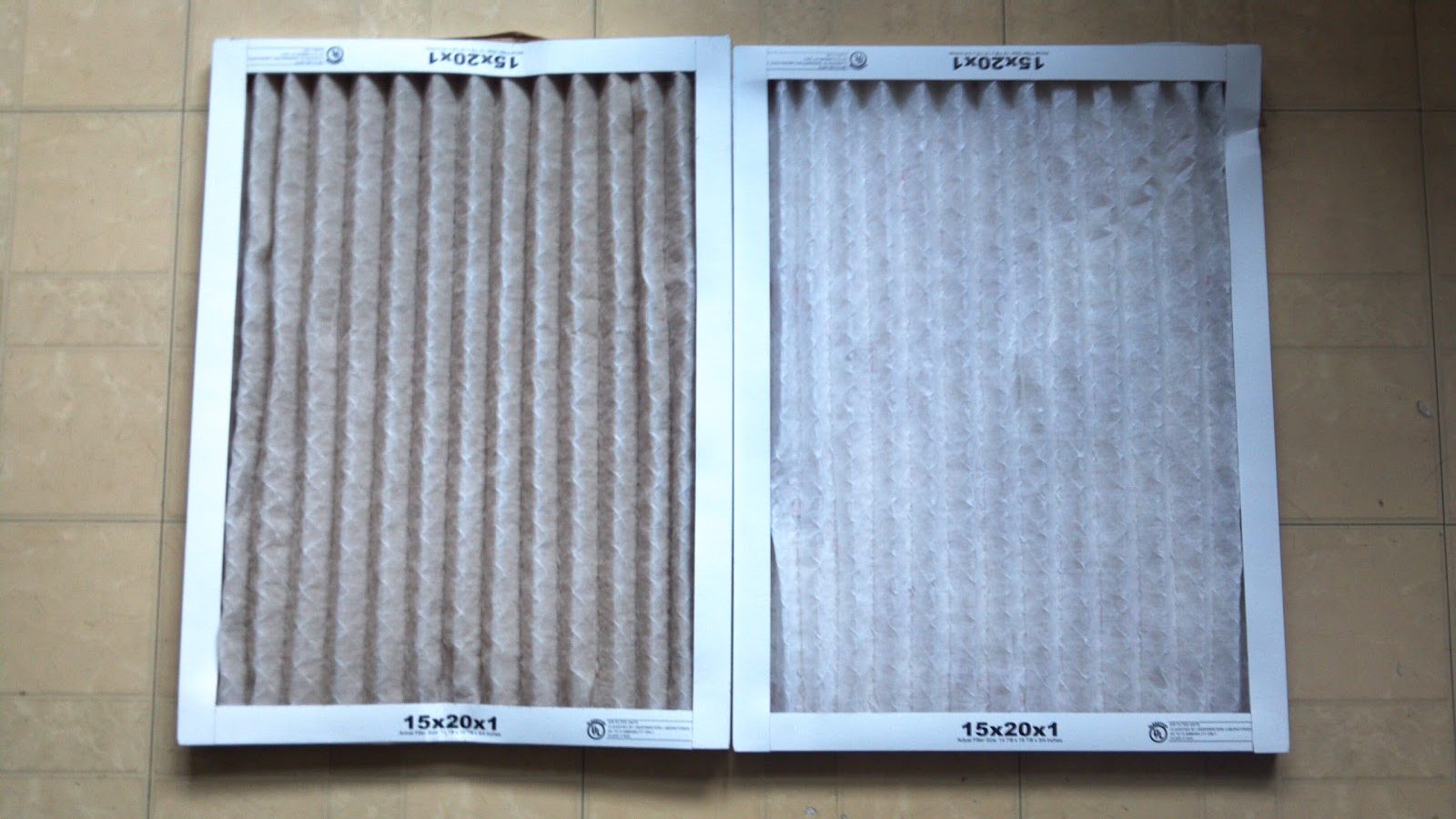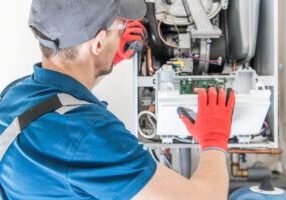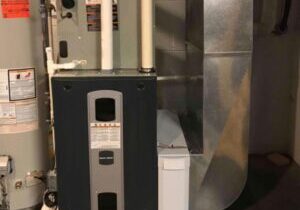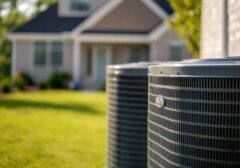This article was originally published in August of 2020. We have updated it with new information to help you know when it’s time to change the air filter in your HVAC system.
How often do I need to change my air filter?
As HVAC professionals, with over 20 years of experience, one of the most common questions we hear from our customers is, “How often should I change the air filter in my HVAC system?” We understand the demands of daily life– work, family, and pets can be overwhelming, leaving little room for concerns about your HVAC system.
In fact, you’re not alone.
- 1 in 5 people say that it’s not important to change their air filter.
- 29% never change their home’s air filters.
- Of those that do change their air filter, 31% do it every few months.
- 82% of Americans fail to change their air filter monthly.
Neglecting to pay attention to your air filter can create a host of inconvenient issues. In this piece, we’ll delve into the significance of air filters, what they do, and how frequently you should swap them out to avoid the potential for major headaches in the future.
How do air filters work?
Air filters pull and trap particles and contaminants from the air your HVAC system needs to operate. These filters come in a variety of sizes and styles, and are typically made up of porous materials like fiberglass and pleated paper. Using mechanical and electrostatic filtration, dust, pollen, pet dander, and a host of pesky and other contaminants are captured. If your air filter is too dirty or missing altogether, the debris can collect in your system (Read: Why Cleaning Your Condenser Coil Is Important), causing a host of problems, and then re enter into the air you breathe (Read: The Top 3 Products For Indoor Air Quality).
The air filter is essential for safeguarding your HVAC and your home. Regular maintenance, including replacing and cleaning the filter are essential to your health and the integrity of your HVAC equipment.
How often should I change my air filter?
To avoid these problems and ensure efficient operation of your HVAC system, it’s important to follow the manufacturer’s recommendations of replacing your filter every 1-3 months. Regular maintenance and consistently changing your filter can save you money in the long run and help maintain good indoor air quality.
How do I know when it’s time to change my air filter?
Most manufacturers recommend that basic filters are changed every 30 to 60 days, but there are other circumstances that could affect that schedule. Consider changing your filter if you can’t remember when it was last changed or if your:
- Vents are full of dust and dirt.
- Air filter looks clogged or dirty.
- HVAC system is taking longer to cool or heat your home.
- Air quality seems poor.
What happens if I don’t change my air filter?
Left: A used filter ready to be changed. Right: A new filter.
By neglecting to change your air filter, it could lead to poor efficiency, health problems, and costly repairs.
- Overheating or freezing of HVAC components
In heating systems, reduced air flow could cause your heat exchanger to overheat. In cooling systems your clogged filter causes condensation that turns to frost or ice on your evaporator coils and in extreme cases, your HVAC system may even shut down to prevent further damage or overheating. All scenarios can lead to inconvenience, discomfort, system malfunctions, and costly repairs.
- Reduced efficiency resulting in higher energy bills
When your air filter is clogged and your airflow has been reduced, your system has to work harder to get the air to where it’s needed. This increases your utility bills since your system is running longer in order to meet the demand you’ve commanded from it. Changing your air filter regularly can save up to 15% of your energy consumption.
- Poor temperature regulation
Since a clogged air filter restricts airflow, it can make your HVAC system work harder than it needs to while leading to uneven temperature distribution throughout your home. SO next time certain rooms feel significantly warmer or cooler than others, or you just can’t seem to get comfortable, the solution might just be as easy as replacing your air filter.
- Poor air quality leading to potential health issues
A clogged air filter can diminish indoor air quality, allowing airborne contaminants like dust, allergies, and mold spores to circulate freely. This can lead to symptoms such as sneezing, coughing, headaches, and fatigue, while also intensifying allergies and respiratory conditions such as asthma. In more humid environments, even mold growth is possible.
- Reduced efficiency and increased repair costs
When an air filter is clogged, it reduces HVAC efficiency forcing the system to work harder and consume more energy. The extra strain can lead to overheating, frost or ice formation, short cycling, and premature wear on critical components like the blower motor. Overtime, these issues not only result in higher energy bills, but also can cause damage and decrease the lifespan of the system.
- Voided warranties
Some HVAC manufacturers include a clause in their warranties that requires regular maintenance, including changing the air filters. Neglecting this maintenance may void your warranty, leaving you responsible for the costly repairs.
- A shorter system lifespan
The increased strain on the HVAC system caused by a dirty filter can lead to premature wear and tear, shortening the lifespan of the equipment. Regular scheduled maintenance, including changing the air filter, can extend the system’s longevity.
Changing your air filter is as easy as 1, 2, 3…
Replacing your air filter is easy to do, important to learn, and can cost less than $40.00.
- Locate the filter
Typically near the return air duct or the blower compartment of your HVAC system. - Remove the old filter
Turn off your HVAC system, open the housing, and carefully slide out the old filter. Note the filter’s size, which is usually printed on the frame. - Insert new filter
Insert the new filter with the airflow arrow pointing in the same direction as the old filter, secure the housing, and turn your HVAC system back on.
What Does a Filter Ready to Be Changed Look Like?
An air filter that needs to be changed will be dirty – filled with dust and debris, and may omit an unpleasant odor.
If you notice your old filters looking so obstructed that it seems impossible for air to even pass through them, it’s a signal to reach out to Spurk HVAC. We can schedule a home visit to assess your system and address any underlying problems stemming from these blocked filters– reducing the potential of future complications.
About Spurk HVAC
Spurk HVAC was formed in 2018 and is located in Warrendale, Pennsylvania. We proudly serve Cranberry Twp., Wexford, Gibsonia, Mars, and the surrounding areas. We are an American Standard Customer Care Dealer and a Mitsubishi Diamond Contractor. We service all makes and models.
Please contact us if you are seeking air conditioner repair, air conditioning maintenance, air conditioning replacement, heating repair, heating system replacement, or any other heating & cooling services. Whether you are looking for residential or commercial HVAC services, we look forward to any and all opportunities to become your preferred HVAC contractor.




/cdn.vox-cdn.com/uploads/chorus_image/image/70717343/best_furnace_filter_panel.0.jpg)




